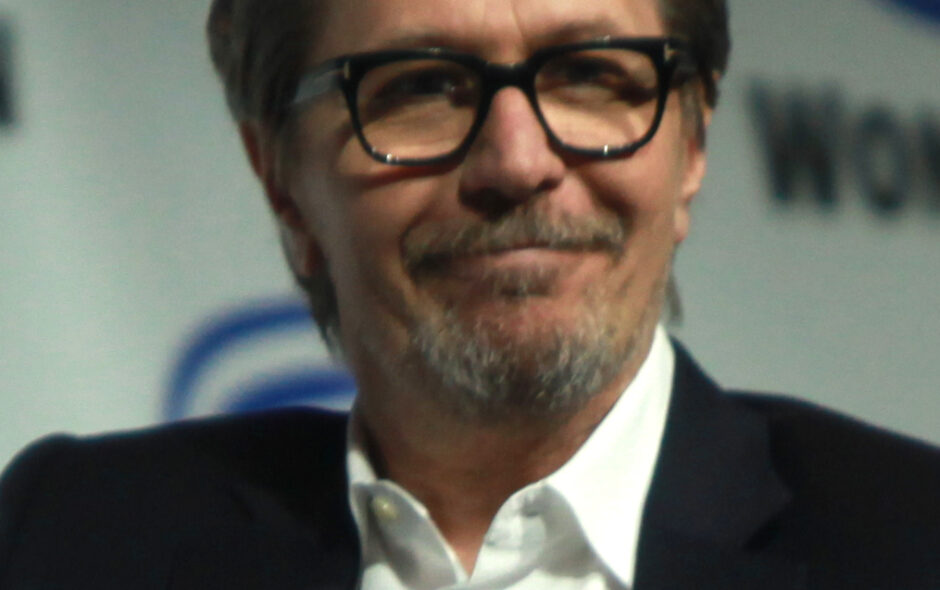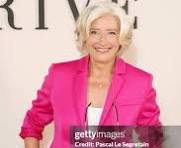Gary Oldman has always been an actor defined by transformation. From his earliest days on the stage in London to his most recent turn as Jackson Lamb in Slow Horses, he has been a performer who disappears into roles so completely that audiences often forget the man behind the character. His career, now more than four decades long, is a testament to versatility, endurance, and an unrelenting commitment to his craft.
Born in London in 1958, Oldman’s early life bore little resemblance to the glamorous industry he would later dominate. He grew up in a working-class family, shaped by hardship and absence. His father left when he was still young, and Oldman has spoken of finding solace in music, performance, and observation. He trained at Rose Bruford College, where he immersed himself in the study of acting and developed the ability to vanish into roles with striking authenticity. It was a skill that would come to define him as one of the most acclaimed actors of his generation.
His breakthrough came with performances that stunned audiences and critics alike. In Sid and Nancy he became Sid Vicious, embodying the chaotic punk rocker with such raw energy that it seemed less like acting and more like possession. Soon after, in Prick Up Your Ears, he delivered another performance that showed both fearlessness and nuance, proving he could handle roles that were as complex as they were controversial. These early films set him apart as a rising star, unwilling to play it safe, and determined to push boundaries.
Hollywood quickly recognized his power on screen, and Oldman began a run of roles in the 1990s that established him as one of the great villains of modern cinema. He was the unhinged DEA agent Stansfield in Léon: The Professional, Dracula in Francis Ford Coppola’s gothic retelling, and the ruthless terrorist Ivan Korshunov in Air Force One. Each role was wildly different, yet unmistakably memorable, filled with idiosyncrasies, menace, and a theatrical energy that only Oldman could bring. He became the actor studios called when they needed a performance that would stick in the audience’s mind long after the credits rolled.
But to confine Oldman’s career to villains would be to miss his range entirely. In Immortal Beloved he embodied Beethoven with an intensity that captured both genius and despair. As Sirius Black in the Harry Potter films, he brought warmth, charm, and gravitas to a story beloved by millions of young fans. And as Commissioner James Gordon in Christopher Nolan’s The Dark Knight trilogy, he grounded a world of superheroes and villains with a performance of quiet authority and understated humanity. These roles showed that Oldman was more than a character actor; he was a storyteller capable of finding the soul in every part he played.
Perhaps the pinnacle of his career arrived with Darkest Hour. Transforming himself into Winston Churchill, Oldman gave a performance that combined technical mastery with profound empathy. Beneath the prosthetics and the booming oratory, he revealed a man wrestling with doubt, fear, and the burden of leadership. The role earned him the Academy Award for Best Actor in 2018, long overdue recognition for an artist who had been delivering extraordinary work for decades.
Oldman’s career has never been static. In addition to his acting, he wrote and directed Nil by Mouth, a raw and unflinching portrait of working-class life in South London. The film reflected his roots and his understanding of hardship, offering a glimpse of the man behind the transformations. It demonstrated that his talent extended beyond performance, into writing and directing with the same fearlessness that defined his acting choices.
His most recent reinvention has come on television, where he stars as Jackson Lamb in Slow Horses. Lamb is a character unlike any Oldman has played before: slovenly, sharp-tongued, vulgar, and unkempt, yet also brilliant and oddly endearing. Oldman relishes the contradictions, crafting a figure who is as magnetic as he is repulsive. With his rumpled overcoat, greasy hair, and sharp wit, Lamb could easily descend into parody, but Oldman ensures he remains human, filled with unexpected depth and flashes of loyalty. The role has brought Oldman to a new generation of fans, proving that even in his sixties he remains at the forefront of acting talent.
What distinguishes Oldman is his devotion to transformation. He is not an actor who relies on charm or a recognizable persona; instead, he disappears completely into each role, adopting new voices, gestures, and mannerisms until the man himself is unrecognizable. This ability has made him one of the few actors who can shift seamlessly between independent films, blockbuster franchises, and television dramas without ever seeming out of place. His career is a gallery of unforgettable characters, none of whom resemble one another, yet all of whom carry the stamp of his meticulous craft.
Across his career, Gary Oldman has proven himself to be more than just an actor—he is a craftsman, an artist, and a chameleon. From the punk chaos of Sid Vicious to the stoic authority of Gordon, from the genius of Beethoven to the grotesque brilliance of Jackson Lamb, his characters are etched into the history of cinema and television. His legacy is not simply one of accolades or awards but of transformation, reinvention, and the ability to make audiences believe completely in the lives he brings to the screen. For Oldman, acting has never been about being seen, but about disappearing so his characters can live fully—and in that disappearing act, he has left behind one of the most extraordinary careers in modern film.




